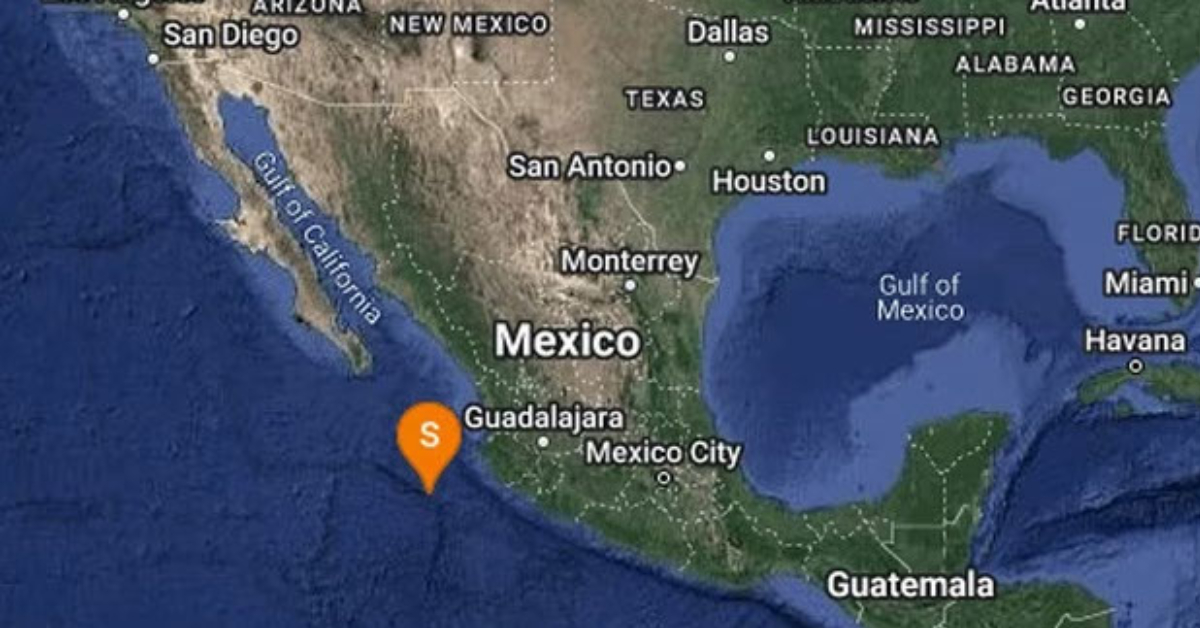Puerto Vallarta (PVDN) - The National Seismological Service reported that at 03:55 this Tuesday an earthquake of magnitude 4.0 was detected with an epicenter off the southwest coast of Puerto Vallarta.
A new tremor in Mexico: in the early hours of this Tuesday, March 28, a magnitude 4.0 earthquake was recorded in Puerto Vallarta, Jalisco.
The National Seismological Service (SSN) reported that at 03:55 this Tuesday an earthquake of magnitude 4.0 was detected with an epicenter located 300 kilometers southwest of Puerto Vallarta.
The agency of the National Autonomous University of Mexico (UNAM) detailed that the coordinates of the epicenter of the magnitude 4.4 tremor were:
- latitude: 18.89
- length: -107.44
- depth: 10km
“EARTHQUAKE Magnitude 4.0 Loc 300 km SOUTHWEST of PUERTO VALLARTA, JAL 03/28/23 03:55:08 Lat 18.89 Lon -107.44 Pf 10 km”, reported the National Seismological Service on Twitter.
The Mexican Seismic Alert System did not report the earthquake in Puerto Vallarta, so it did not warrant the activation of the seismic alert in Mexico City, given that the energy estimate in the first seconds did not exceed the preset levels to trigger earthquake alarms.
These are the latest earthquakes detected in Mexico
According to what was reported by the National Seismological, these are the most recent earthquakes reported in Mexico in the last hours:
- Earthquake in Salinas Cruz, Oaxaca : EARTHQUAKE Magnitude 4.0 Loc 39 km WEST of SALINA CRUZ, OAX 03/27/23 22:39:12 Lat 16.11 Lon -95.56 Pf 6 km
- Earthquake in Pijijiapan, Chiapas : EARTHQUAKE Magnitude 4.1 Loc. 29 km SOUTHWEST of PIJIJIAPAN, CHIS 03/28/23 01:06:22 Lat 15.53 Lon -93.43 Pf 87 km
- Earthquake in Pinotepa Nacional, Oaxaca : EARTHQUAKE Magnitude 4.0 Loc. 5 km WEST of PINOTEPA NACIONAL, OAX 03/28/23 01:16:52 Lat 16.34 Lon -98.10 Pf 16 km
- Earthquake in Periban, Michoacán : EARTHQUAKE Magnitude 3.5 Loc. 7 km NORTHEAST of PERIBAN, MICH 03/28/23 01:42:11 Lat 19.56 Lon -102.38 Pf 3 km
- Earthquake in Mapastepec, Chiapas : EARTHQUAKE Magnitude 4.1 Loc 40 km NORTH of MAPASTEPEC, CHIS 03/28/23 02:41:47 Lat 15.80 Lon -92.86 Pf 168 km
- Earthquake in Los Reyes Salgado, Michoacán : EARTHQUAKE Magnitude 3.5 Loc. 6 km NORTHEAST of LOS REYES DE SALGADO, MICH 03/28/23 03:00:29 Lat 19.61 Lon -102.42 Pf 3 km












